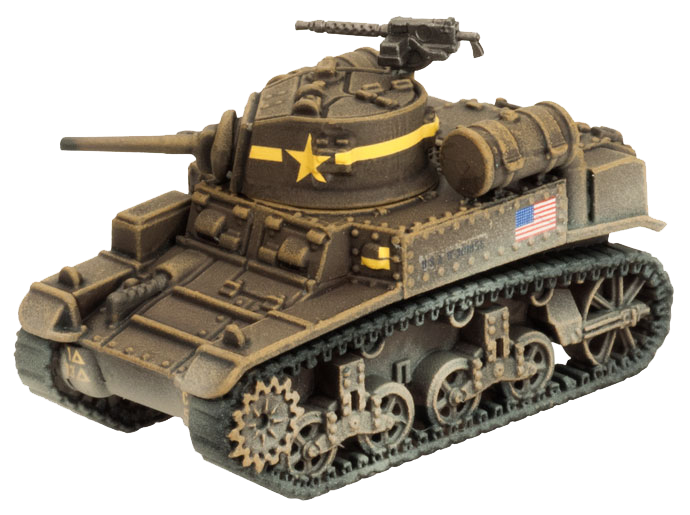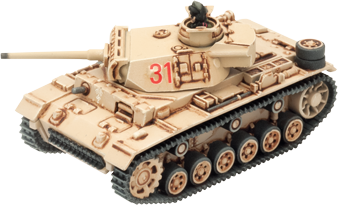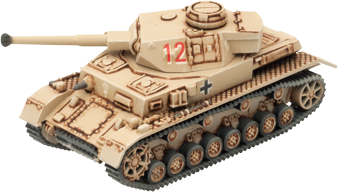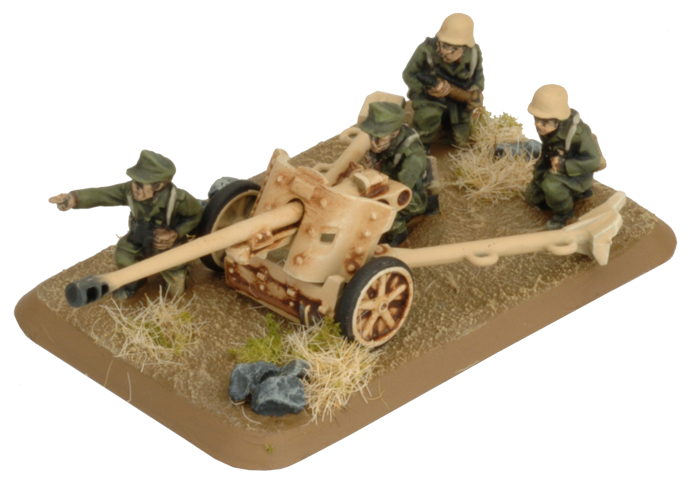
|
On 8 November 1942 American forces landed with a bang in North Africa, they stomed ashore and advanced on Tunisia from the west, sandwiching the German Afrika Korps and their Italian allies between the US forces and the British pushing from the east. On 19 February 1943, the American Second Corps clashed in an epic battle at Kasserine with the attacking German Panzer Divisions under the command of General Rommel, the Desert Fox. Click here to order The Kasserine starter set from the online store today! |
|
|
Kasserine includes: • Four plastic M3 Lee tanks |
|
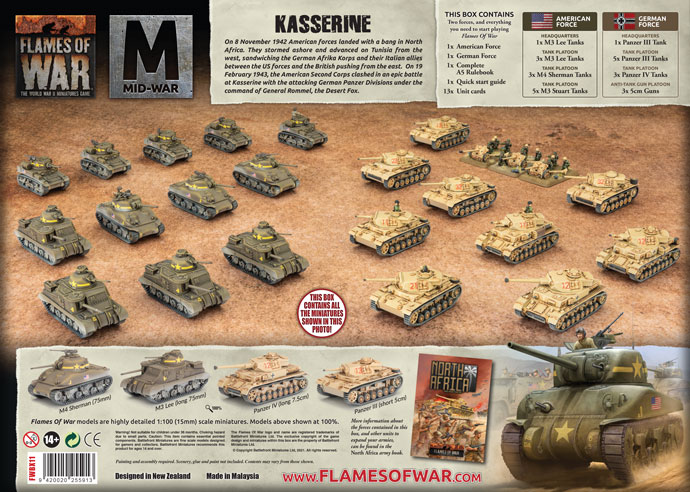 |
|
|
|
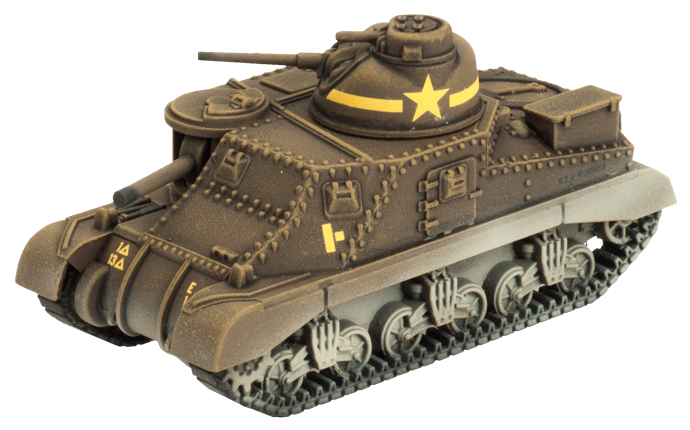 |
In the build-up to entering the war, US Army planners knew they would need a 75mm-armed tank to overcome the latest German panzers. Of the proposed designs which could be produced quickly, none had a turret big enough to hold a 75mm gun. As a temporary solution, the hull of a pre-war M2A1 medium tank was modified to take a short M2 75mm gun in a limited traverse sponson in the right front of the hull, while retaining a 37mm gun in the turret. This odd, ungainly vehicle was far from perfect, but it was nevertheless an effective tank that filled a much-needed role at a crucial time. |
|
|
|
|
The M4 Medium Tank—best known by the nickname ‘Sherman’ given to it by the British—is the most famous American tank, operated in large numbers by the US and their allies across all theatres. Over the course of the war there will be numerous variants, changing the engine and suspension, adding more armour and bigger guns, but all with the same tall, solid shape. The M4A1 model, recognisable by its distinctive rounded single-piece cast upper hull, is the first Sherman variant to enter combat with the US armored forces. Most of the initial production run of the original M4 variant, with its sharpsided welded upper hull, were supplied to the British through the Lend-Lease programme. |
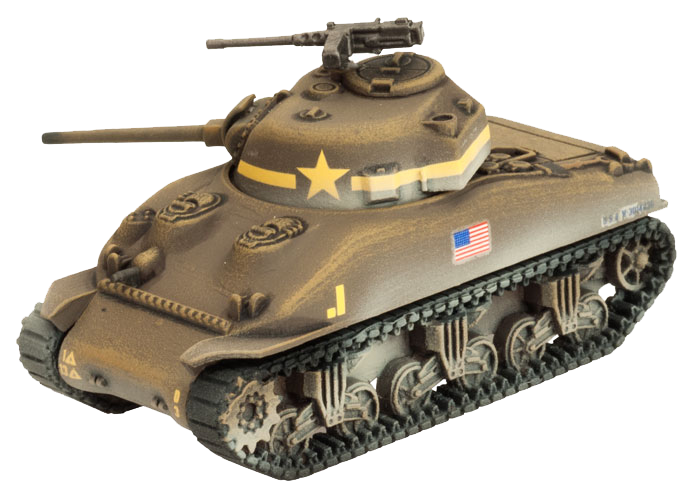 |
|
|
|
|
|
As well as serving with US armored divisions in the light battalions of the armored regiments, thousands of M3 Light Tanks were supplied to Britain and the Soviet Union. The British codenamed the tank ‘General Stuart’, after the famous American Civil War cavalry commander, and the name caught on with US troops as well. The M3 Stuart was mechanically reliable, and even though it had lighter armor and a smaller gun than the latest German panzers, its small size and high speed made it well suited to probing enemy defences and fighting a free-wheeling and tactical style of moving battle. |
|
|
|
|
The Panzer III is Germany's standard tank, making up over two-thirds of their tank strength. It has good mobility, is well armoured, and is armed with an effective 5cm (2-inch) gun. Manned by veteran crews that are confident in |
|
|
|
|
|
As the war progressed, the biggest problem the panzer troops faced changed from being hidden anti-tank guns, for which the short-barrelled Panzer IV was the answer, to increasingly heavily armoured enemy tanks. Fitting the Panzer IV with a long-barrelled anti-tank gun was the |
|
|
|
After the Spanish Civil War, the German authorities started to think that a new anti-tank gun would be needed, even though the 3.7 cm Pak 36 had proven to be very successful. They asked Rheinmetall-Borsig to produce a new and more capable AT-gun. The 5 cm PaK 38 was approved for mass production in 1939. Armor-piercing projectiles fired by this gun were known to pierce the armor of British infantry and cruiser tanks as well as that of U.S. light and medium tanks. The gun proved especially effective in jamming tank turrets by hits at the junction of the turret and hull. These hits fuze the metal of the two parts together and immobilize the turret. |
|
 |
| Contact the customer service team at customerservice@battlefront.co.nz if you have issues with any components. |
| Flames Of War 4th Edition Mini Rulebook (x1) |
 |
| Quick Start Guide (x1) |
| Plastic M3 Lee Sprue (x4) |
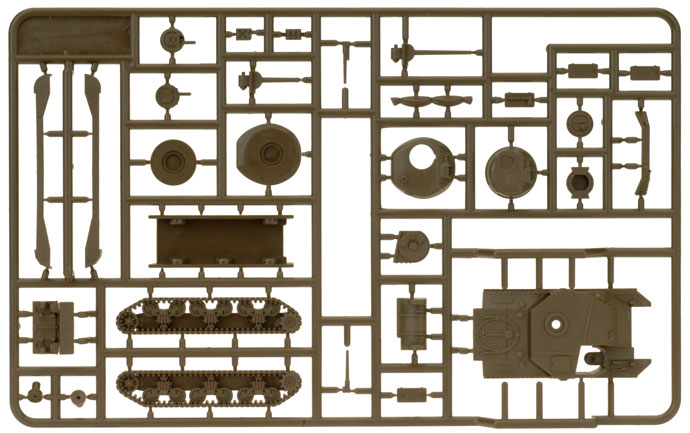 |
| Plastic M4 Sherman Sprue (x3) |
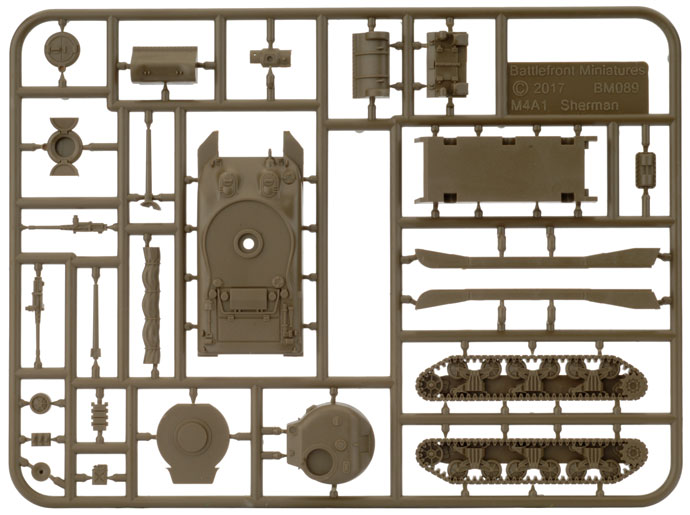 |
| Plastic M3 Stuart Sprue (x5) |
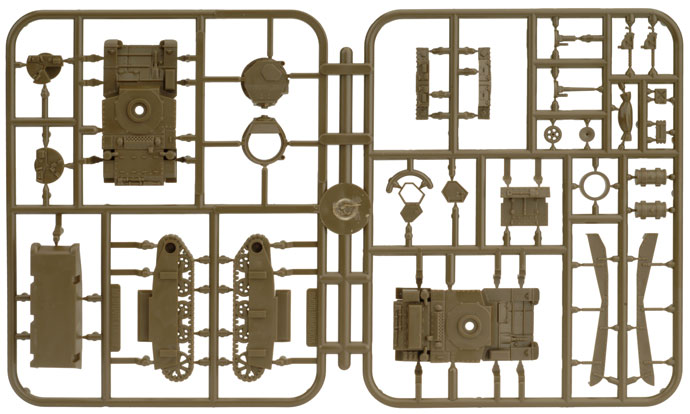 |
| Plastic Panzer III Sprue (x6) |
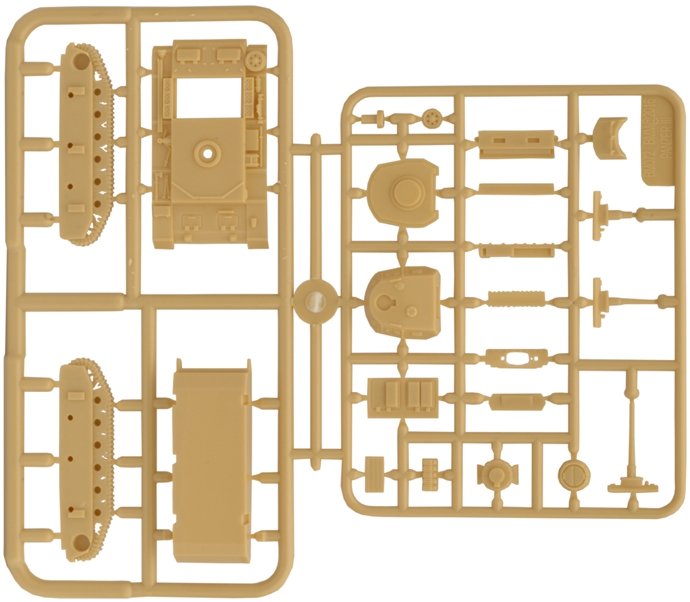 |
| Plastic Panzer IV Sprue (x3) |
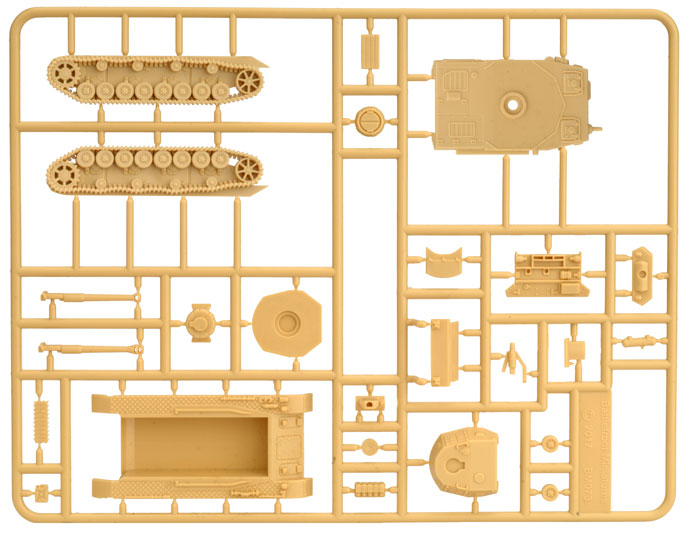 |
| Plastic Gun Crew Sprue (5cm) (x3) | Plastic 5cm Tank-hunter Sprue (x3) |
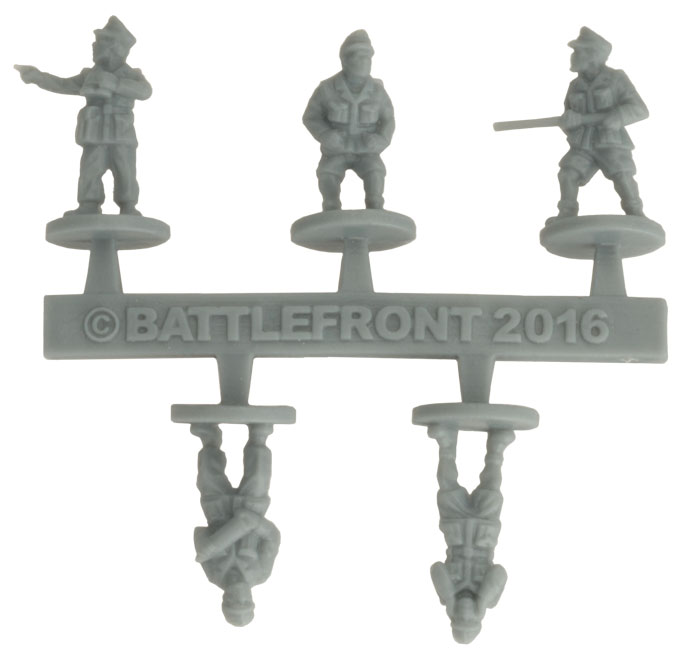 |
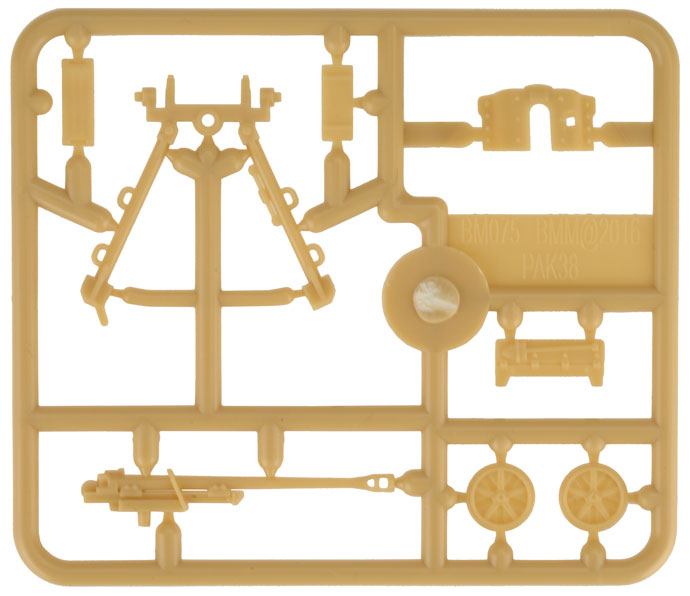 |
| Plastic Bases |
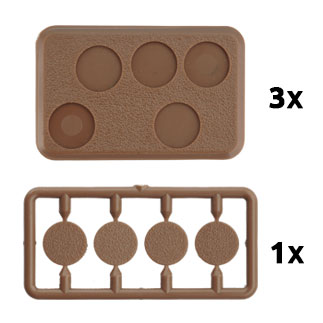 |
| Unit Cards | |
| Afrika Korps Force Card (x1) | Fighting First Force Card (x1) |
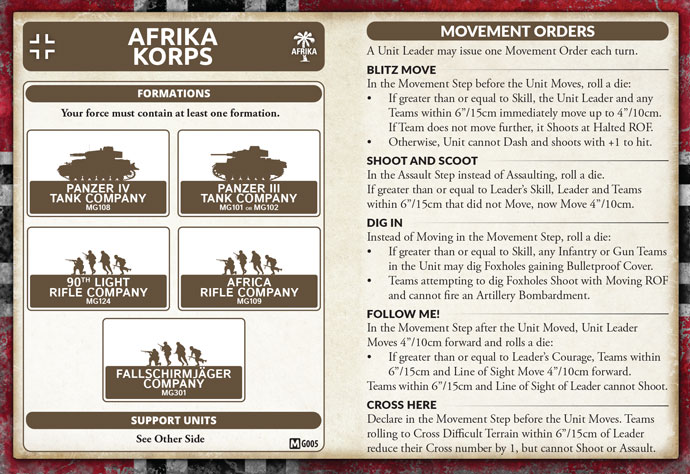
|
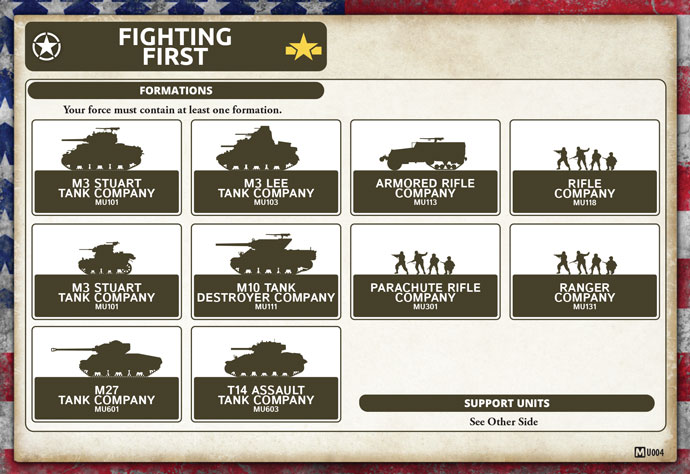 |
| M4 Sherman Tank Platoon HQ (x1) | M4 Sherman Tank Platoon (x1) |
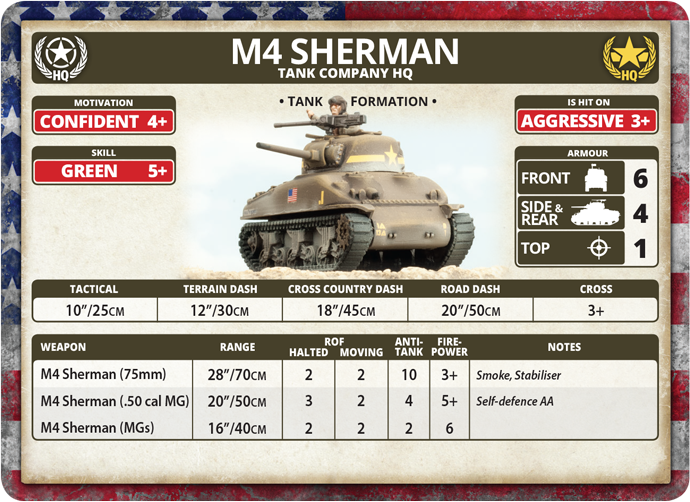
|
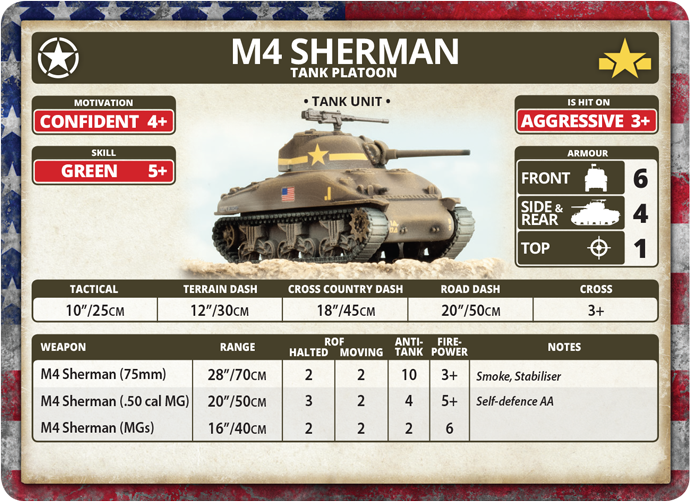
|
| M3 Stuart Tank Platoon (x1) | Panzer III Tank Company HQ (x1) |
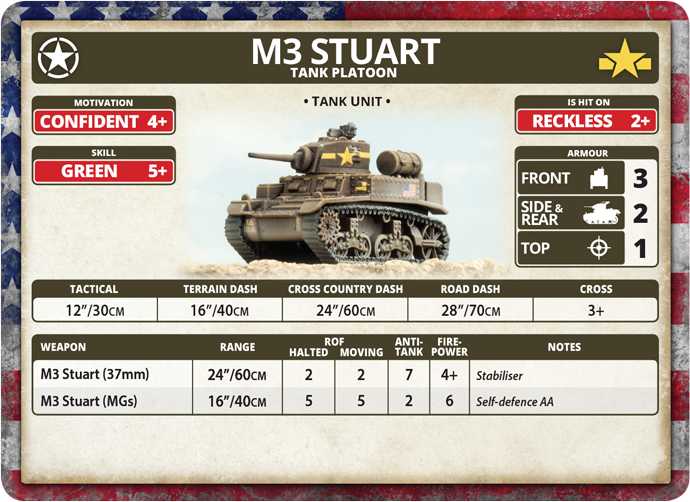 |
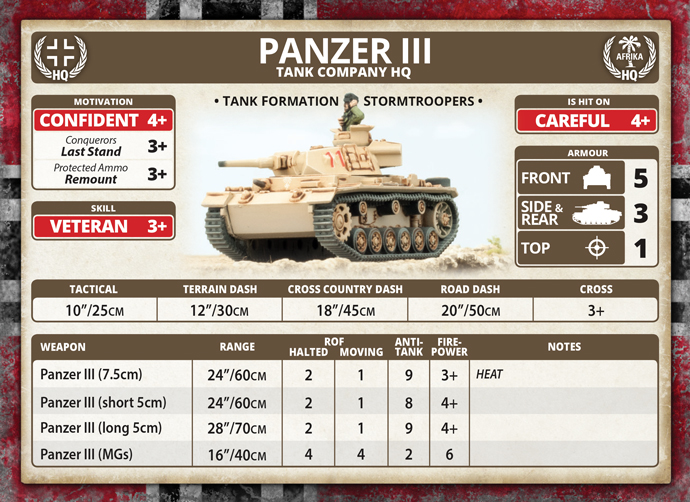 |
| Panzer III Tank Platoon (x1) | Panzer III (Uparmoured) Tank Platoon (x1) |
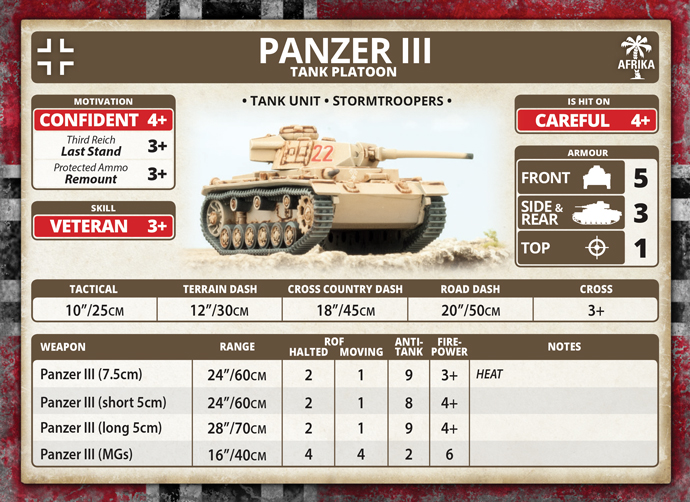
|
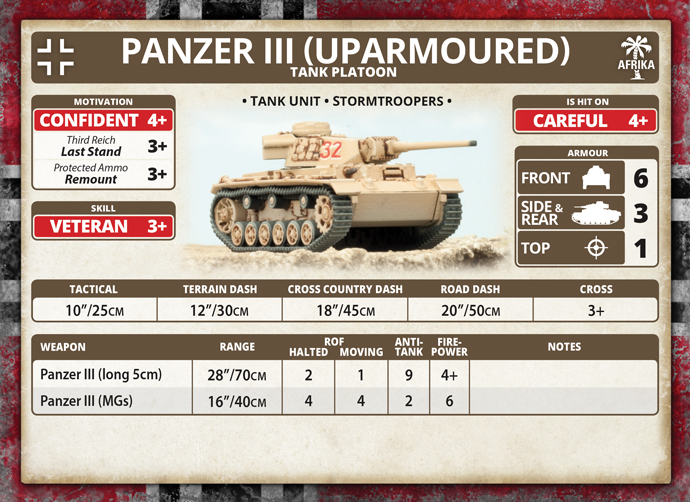
|
| Panzer III (Mixed) Tank Platoon (x1) | Panzer IV Tank Platoon (x1) |
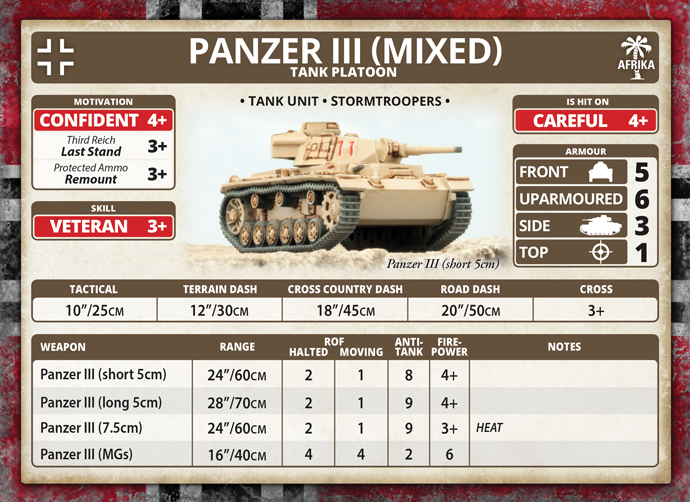
|
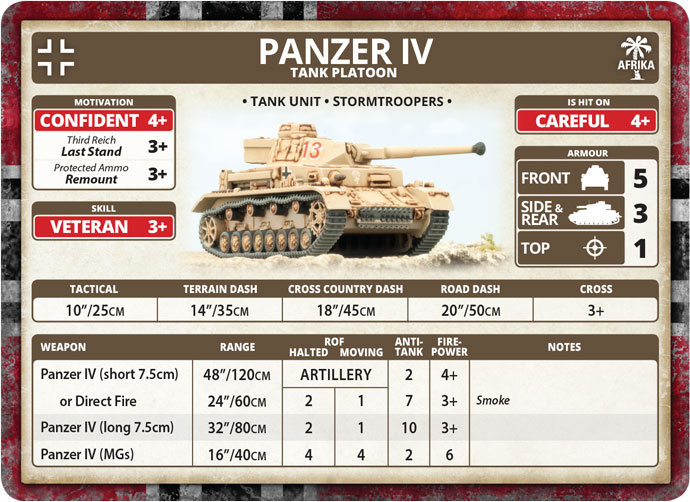 |
| 5cm Tank-hunter Platoon (x1) |
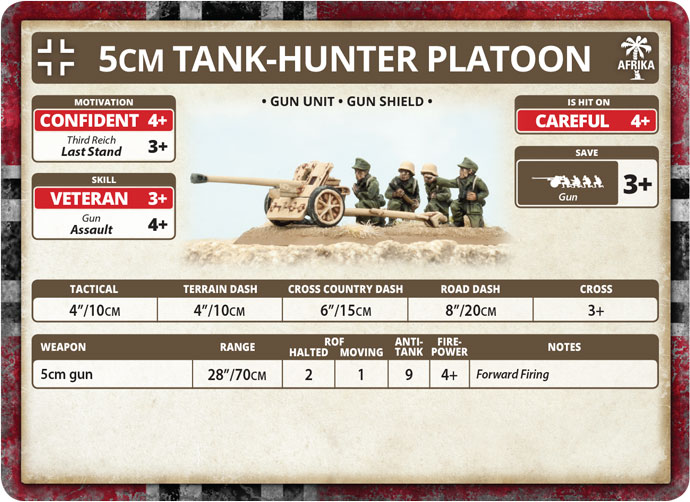
|
 |
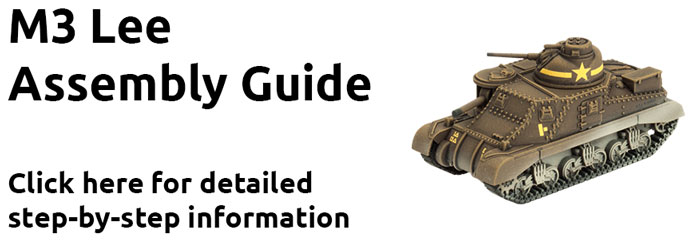 |
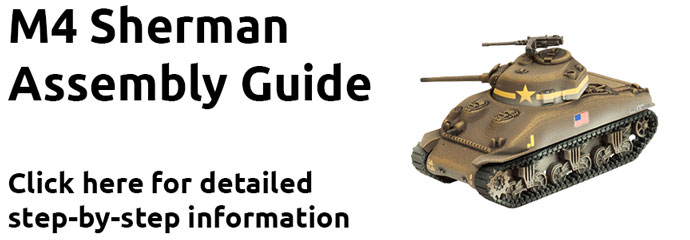 |
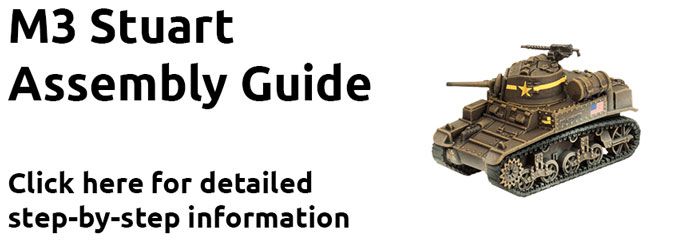 |
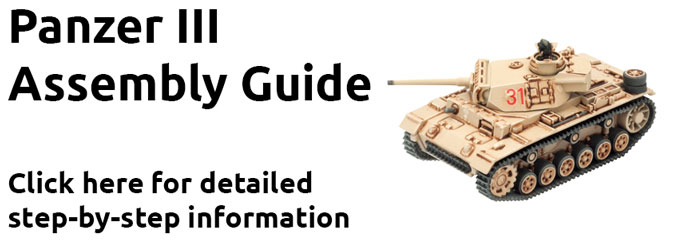 |
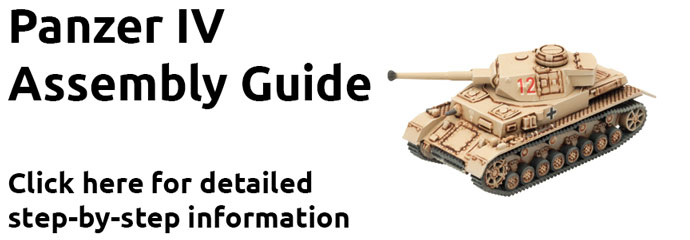 |
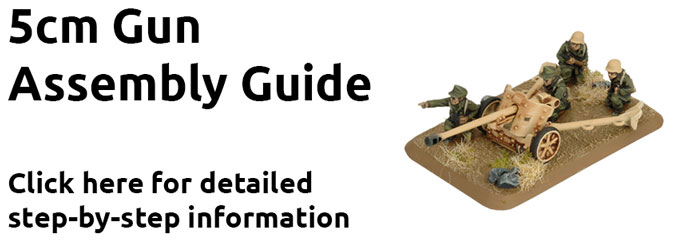 |




